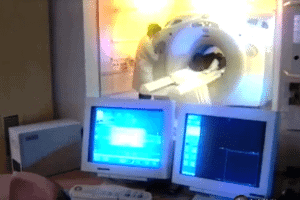
Radiation Overdose Injury Lawsuits. Have you been the victim of excess radiation from a CAT scan or other medical imaging? According to recent studies, Americans are exposed to more radiation as a result of procedures like CAT scans than people elsewhere. Patients have even been injured by a radiation overdose from a single CAT […]

Radiation Overdose Injury Lawsuits. Have you been the victim of excess radiation from a CAT scan or other medical imaging? According to recent studies, Americans are exposed to more radiation as a result of procedures like CAT scans than people elsewhere. Patients have even been injured by a radiation overdose from a single CAT scan. Excessive exposure to radiation through medical imaging may increase your lifetime risk of cataracts, cancer and brain damage.
If you or a loved one were injured as a result of excessive exposure to medical radiation or a radiation overdose, you have valuable legal rights. Our medical radiation lawyers are offering free legal consultations to anyone injured as a result of medical imaging. If you or a loved one were the recipient of a radiation overdose, or suffer an illness that could be the result of too many CAT scans or other medical imaging procedures, our medical radiation lawyers want to hear from you today.
Certain medical devices use radioactive substances:
While the medical devices used help doctors get a better picture of the inside of your body, radiation overexposure can cause long-term complications, which can lead to the growth of malignant tumors, or cancer. Additionally, one powerful overexposure to radiation, you can suffer from burns and radiation illness. Even procedures like cardiac radio frequency ablation have enough radioactive power to burn the nearby skin. Radiation illness also comes with other symptoms, such as:
Normally, although things like CT scans can expose you to a higher amount of radiation than is in sunlight, doctors carefully control these procedures so that you do not receive too much. However, sometimes machine malfunctions can give you an intense concentration of radiation, leaving you hurting. Occasionally, medication can help your body rid itself of radioactive material, but often the lasting damage is already done.
According to the Associated Press, the U.S. accounts for half of the most advanced procedures that use radiation, and the average American’s radiation dose has grown six fold over the last couple of decades. The risk of radiation related cancer is growing because people in everyday situations are getting imaging tests like CAT scans far too often. Children and young women sometimes receive too high a dose during some procedures because technicians don’t adjust doses for each patient’s size.
CT scans have soared in use over the last decade, often replacing tests that don’t require radiation, such as ultrasound and MRI. One major problem is that doctors don’t keep track of radiation given their patients, and there are no federal rules governing dose for most procedures.
A chest or abdominal CT scan involves 10 to 20 millisieverts (a measure of dose), versus 0.01 to 0.1 for an ordinary chest X-ray, less than 1 for a mammogram, and as little as 0.005 for a dental X-ray. Natural radiation from the sun and soil accounts for about 2 millisieverts a year. A 2009 study estimated that 4 million Americans get more than 20 millisieverts a year from medical imaging. Two percent of people in the study had high exposure — 20 to 50 millisieverts.
CT scans became popular because they offer a quick, relatively cheap way to get three-dimensional pictures that give an almost surgical view of the body. Doctors use them to evaluate trauma, belly pain, seizures, chronic headaches and other ailments. However, they also carry a higher risk than older scans. One CT chest scan carries as much radiation as nearly 400 chest X-rays, according to government officials. There is some disagreement over the cancer risk associated with medical imaging, though virtually all medical societies recommend minimizing radiation exposure.
While too many CT scans can lead to health problems in the long term, there have been instances where patients received a radiation overdose from a single scan. In 2009, for instance, the U.S. Food & Drug Administration (FDA) issued an alert and announced it was investigating cases of radiation overdose from CAT scans at a half dozen hospitals around the country, including Cedar-Sinai Medical Center in Los Angeles, Providence Saint Joseph Medical Center in Burbank, Glendale Adventist Medical Center in California, and Alabama’s Huntsville Hospital. The agency found that at least 385 patients who received excessive radiation from CAT brain perfusion scans had received excess radiation.
According to the FDA alerts, machines involved in the botched CAT scans, made by General Electric and Toshiba, had been wrongly calibrated and subjected patients who underwent brain perfusion scans following a stroke to excessive doses of radiation. It wasn’t until patients began complaining of hair loss and skin reddening that the error was found.
Patients who received these radiation overdoses now face an increased susceptibility to a variety of health problems that are caused by radiation poisoning. These include organ damage and cancer. Unfortunately, it could be years before these radiation overdose illnesses become apparent.
If you or a loved one were injured by excess medical radiation from a CAT or other medical scan, you may have valuable legal rights. To find out how our medical radiation lawyers can help you, please fill out our online form, or call 1-800-YOURLAWYER (1-800-968-7529).
Radiation Exposure Compensation Act (RECA)
Radiation Exposure Environmental Contamination
Radiation Overexposure Medical Devices


